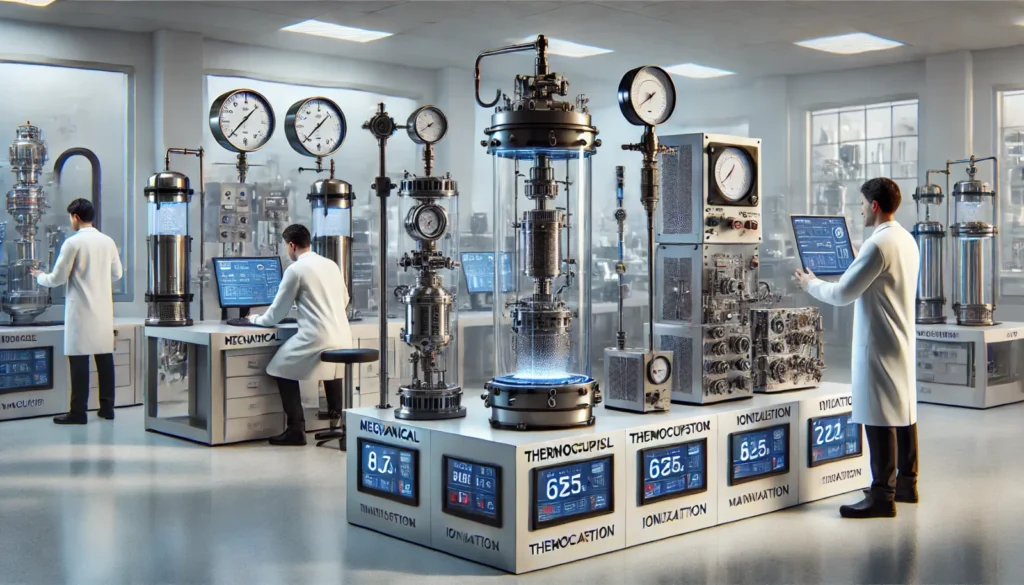5 Essential Features to Look for in Vacuum Meters

Vacuum meters are crucial tools in various industries, from manufacturing to research laboratories. They measure the pressure in a vacuum system, helping ensure processes run smoothly and efficiently. But with so many options available, choosing the right vacuum meter can be challenging. What are the key features you should consider? Why are these features important? Here’s a guide to help you identify the essential elements to look for in a vacuum meter.
Accuracy
Why Accuracy Matters
Accuracy is one of the most critical features in a vacuum meter. Accurate readings ensure that you can trust the data you receive, which is crucial for maintaining the integrity of your processes. Whether you’re working in a laboratory or an industrial setting, precise measurements are necessary to avoid errors that could lead to inefficiencies or costly issues.
What to Look For
When evaluating a vacumetros for accuracy, check the manufacturer’s specifications for its measurement range and resolution. The device should offer a high level of precision within the range you need for your applications. Calibration and certification are also vital; ensure that the meter is calibrated according to industry standards and is certified by a reputable organization.
Range and Sensitivity
Why Range and Sensitivity Are Important
The range and sensitivity of a vacumetros determine its capability to measure various levels of vacuum pressure. A device with a broad measurement range can handle different pressures, making it versatile for different applications. Sensitivity ensures that the meter can detect small changes in pressure, which is especially important in processes that require fine-tuning.
What to Look For
Look for a vacuum meter with a range that covers both the high and low pressures you encounter in your work. Sensitivity should be high enough to detect minor fluctuations. Check the specifications for both range and sensitivity to ensure they align with your needs. If you’re unsure, consider consulting with a supplier to find a meter that fits your specific requirements.
Durability and Build Quality
Why Durability and Build Quality Matter
A vacuum meter’s durability and build quality are essential for its longevity and reliable performance. Devices used in harsh or demanding environments need to withstand wear and tear, temperature fluctuations, and exposure to chemicals. A well-built meter can save you money in the long run by reducing the need for frequent replacements or repairs.
What to Look For
Inspect the materials used in the construction of the vacumetros. High-quality, rugged materials such as stainless steel or specialized plastics often indicate durability. Additionally, check for features like protective casings or seals that enhance the meter’s resistance to environmental factors. Ensure that the device is built to handle the conditions in which it will be used.
Ease of Use and Interface
Why Ease of Use and Interface Are Crucial
A user-friendly interface makes operating a vacuum meter simpler and more efficient. A clear, intuitive display and straightforward controls help minimize errors and make it easier to interpret readings. This is particularly important for operators who may not have extensive technical training.
What to Look For
Choose a vacuum meter with a clear and readable display, ideally with backlighting for visibility in various lighting conditions. The controls should be easy to understand and operate. Some meters come with digital interfaces that offer additional features like data logging or remote monitoring, which can enhance convenience and functionality.
Calibration and Maintenance
Why Calibration and Maintenance Are Necessary
Regular calibration and maintenance ensure that your vacumetros continues to provide accurate readings over time. Proper maintenance helps prevent issues that could affect the performance and reliability of the device. Without proper calibration and upkeep, even the most advanced vacuum meter can become unreliable.
What to Look For
Check if the vacuum meter requires regular calibration and if it is easy to perform. Some meters offer self-calibration features, which can simplify the process. Additionally, review the manufacturer’s recommendations for maintenance and ensure that replacement parts or service support are readily available if needed.Here is more The Vital Mag Net Blog: A Guide to Staying Informed and Engaged
Conclusion
Choosing the right vacuum meter involves considering several essential features. Accuracy ensures that you can trust your readings, while range and sensitivity determine the meter’s versatility. Durability and build quality affect the device’s longevity, and ease of use makes operation more efficient. Finally, proper calibration and maintenance are crucial for reliable performance over time. By focusing on these key aspects, you can select a vacuum meter that meets your needs and supports your operations effectively.








